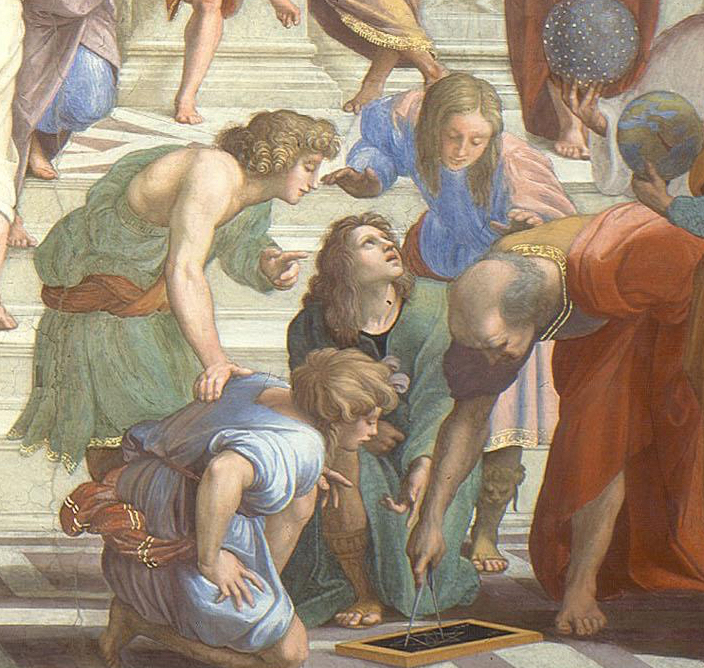Some Samuel Johnson Thoughts
Censure is willingly indulged, because it always implies some superiority.
The natural flights of the human mind are not from pleasure to pleasure, but from hope to hope.
The ignorant always imagine themselves giving some proof of delicacy, when they refuse to be pleased.
When a man finds himself led, though by a train of honest sentiments, to wish for that to which he has no right, he should start back as from a pitfall covered with flowers.
Every old man complains of the growing depravity of the world.
It appears evident that frugality is necessary even to complete the pleasure of expense.
The great end of society is mutual beneficence.
It is well known that the most certain way to give any man pleasure, is to persuade him that you receive pleasure from him, to encourage him to freedom and confidence, and to avoid any such appearance of superiority as may overbear and depress him.
It is the business of moralists to detect the frauds of fortune.
We are all prompted by the same motives, all deceived by the same fallacies, all animated by hope, obstructed by danger, entangled by desire, and seduced by pleasure.
In the esteem of uncorrupted reason, what is of most use is of most value.
No one exerts the power of discernment with much vigour when self-love favours the deceit.
No man has power of acting equal to that of thinking.
Upon practice, not upon opinion, depends the happiness of mankind.
Advice, as it always gives a temporary appearance of superiority, can never be very grateful, even when it is most necessary or most judicious.
In the journey of life some are left behind, because they are naturally feeble and slow; some because they miss the way, and many because they leave it by choice, and instead of pressing onward with a steady pace, delight themselves with momentary deviations, turn aside to pluck every flower, and repose in every shade.-
No place affords a more striking conviction of the vanity of human hopes, than a public library.
Without hope there can be no caution.
Fear is implanted in us as a preservative from evil; but its duty, like that of other passions, is not to overbear reason, but to assist it.
Men are generally willing to hear precepts by which ease is favored.
It is the duty of every man to endeavour that something may be added by his industry to the hereditary aggregate of knowledge and happiness.
When evils cannot be avoided, it is wise to contract the interval of expectation.
He that has abilities to conceive perfection, will not easily be content without it; and since perfection cannot be reached, will lose the opportunity of doing well in the vain hope of unattainable excellence.
To encourage merit with praise is the great business of literature.
Every man is rich or poor, according to the proportion between his desires and enjoyments; any enlargement of wishes is therefore equally destructive to happiness with the diminution of possession; and he that teaches another to long for what he never shall obtain, is no less an enemy to his quiet, than if he had robbed him of part of his patrimony.
Nor can I think any man more worthy of veneration and renown, than those who have burst the shackles
of habitual vice.
We seldom value rightly what we have never known the misery of wanting.
To excite opposition, and inflame malevolence, is the unhappy privilege of courage made arrogant by consciousness of strength.
To trifle agreeably is a secret which schools cannot impart.
He that can do much good or harm will not find many whom ambition or cowardice will suffer to be sincere. While we live upon the level with the rest of mankind, we are reminded of our duty by the admonitions of friends and reproaches of enemies; but men who stand in the highest ranks of society seldom hear of their faults; if by any accident an opprobrious clamour reaches their ears, flattery is always at hand to pour in her opiates.
No man is more dangerous than he that with a will to corrupt, hath the power to please.
As gold which he cannot spend will make no man rich, so knowledge which he cannot apply will make no man wise.
A decent provision for the poor is the true test of civilization.
Little does the critic think... how many honest minds he debars from pleasure, by exciting an artificial fastidiousness, and making them too wise to concur with their own sensations.
What we hope ever to do with ease, we must first learn to do with diligence.
Men seldom give pleasure, where they are not pleased themselves.
A blighted spring makes a barren year.
Genius, whatever it is, is like a fire in the flint, only to be produced by collision with a proper subject.
No man can justly aspire to honour, but at the hazard of disgrace.
Long intervals of pleasure dissipate attention, and weaken constancy; nor is it easy for him that has sunk from diligence into sloth to rouse out of his lethargy, to recollect his notions, rekindle his curiosity, and engage with his former ardour in the toils of study.
Round numbers are always false.
I had rather see the portrait of a dog that I know than all the allegorical pictures they can show me in the world.

